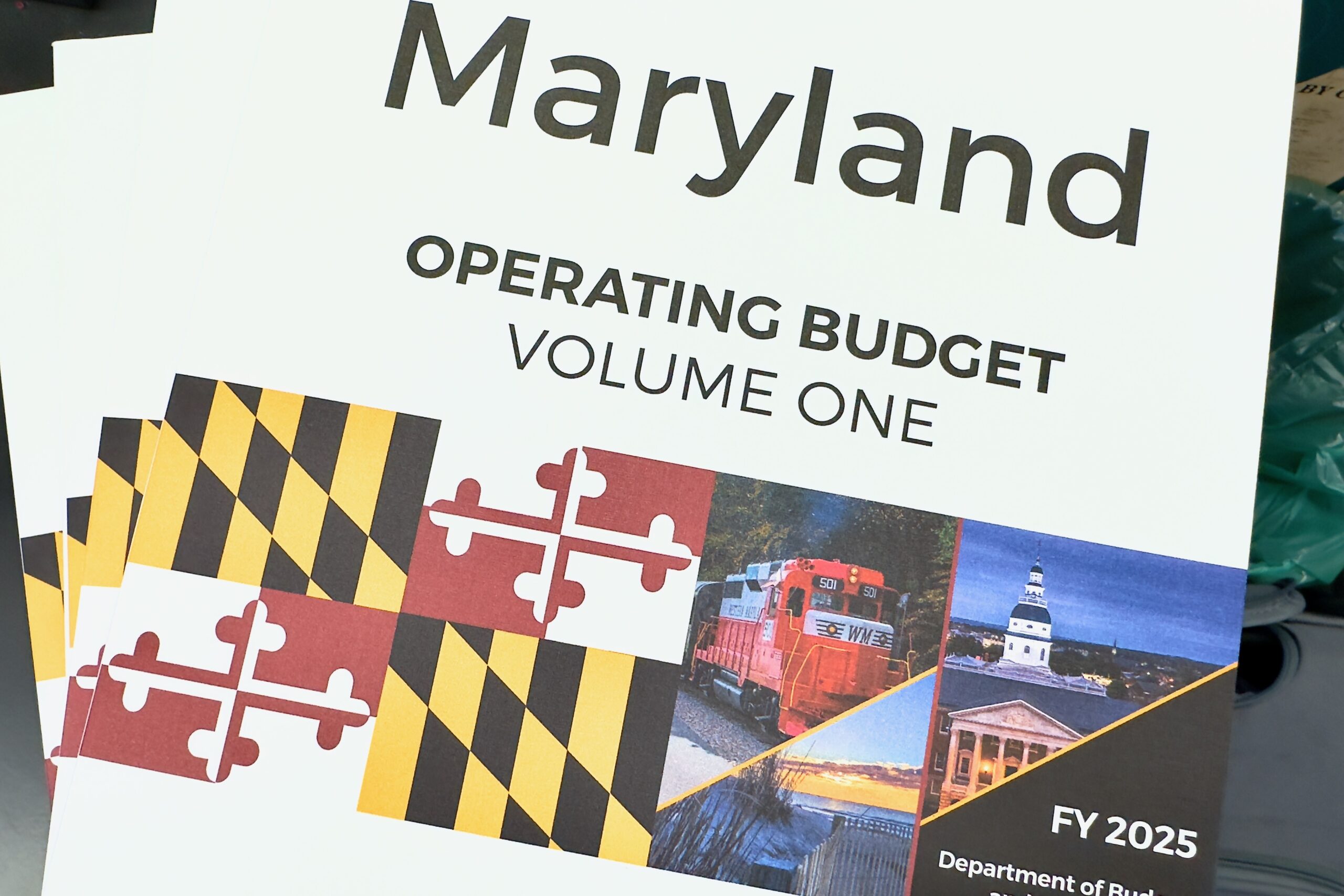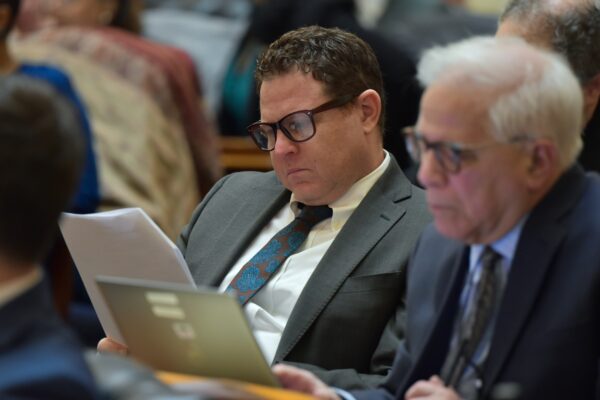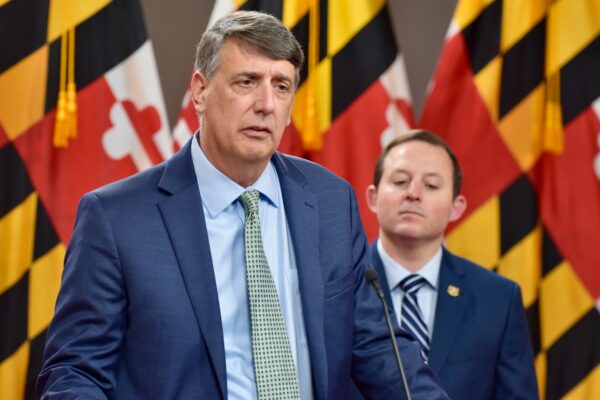House fiscal leader can’t rule out extended session on budget

The chair of the House Appropriations Committee said Tuesday he is not foreclosing on an extended legislative session as a disagreement with the Senate continues over a $1.2 billion tax and gaming package.
Both sides are scheduled to meet Wednesday afternoon though little if any headway appears to have been made.

House Appropriations Chair Ben Barnes (D-Prince George’s and Anne Arundel). Photo by Bryan P. Sears.
“I think the ball is in the Senate’s court. How a reasonable person would infer or not infer that, I think that’s for them to decide,” House Appropriations Chair Ben Barnes (D-Prince George’s and Anne Arundel) said during an impromptu meeting with reporters. “I don’t want to put into the universe that the House is standing here to say that we’re going to go to extra time. We don’t want to do that. What we want to do is we want to resolve these differences right here. Right now.”
When asked if that meant that he and other House leaders were ruling out the potential for an extended session, Barnes said: “I don’t think we could foreclose on that.”
The 90-day General Assembly session is scheduled to end at midnight on April 8.
House and Senate members of a budget conference committee were not scheduled to meet Tuesday following a short, sometimes terse meeting the day before.
In general, the House and Senate are largely in agreement on changes made to the $63 billion budget proposed by Gov. Wes Moore (D). The two chambers have largely left intact Moore’s proposal, which included no tax increases.
The House, citing concerns about looming operating budget shortfalls that top $3 billion in three years and another $3 billion in shortfalls in the Transportation Trust Fund, amended a $1.2 billion revenue package into a companion budget reconciliation bill.
Included in the House proposal is corporate combined tax reporting on worldwide income, iGaming and other fee and tax increases.
The Senate over the last three months remained steadfast in opposition to broad-based tax increases or gaming expansion.
“The Senate is where the Senate is,” Senate President Bill Ferguson (D-Baltimore City) said Tuesday.
Ferguson said the “sticking point” is putting hundreds of millions of dollars in new taxes “on the backs of Marylanders.”
“We’re ready to close the budget down today,” he said.
Senate social media accounts later pushed that sentiment out to the public, driving House leaders to meet with reporters.
Barnes said it is “hard to wrap it up in a day when you don’t want to conference until [Wednesday]. We’re ready to sit at a table to talk about the challenges facing the people in Maryland and to solve those and provide real solutions for what’s facing Marylanders.”

Senate Budget and Taxation Chair Sen. Guy Guzzone (D-Howard). File photo by Bryan P. Sears.
The two sides will attempt to reach an agreement Wednesday after Barnes and Senate Budget and Taxation Committee Chair Guy Guzzone (D-Howard) agreed to another meeting. Initially, it appeared Tuesday the two sides would not meet before the end of the week and not before there was a breakthrough in negotiations.
Guzzone confirmed agreeing to the meeting but said there is “no agreement on everything yet.”
The House and Senate missed a deadline on Monday to reach a deal. Because they failed to pass a new spending plan, Moore on Monday issued an executive order extending the legislative session by 10 days if the two sides cannot reach an accord by April 8.
If that were to happen, the General Assembly would continue meeting and could only work on the budget.
Such an order is not unusual, nor does it guarantee the legislature will go into an extended session.
Since 1992, governors have issued similar orders 20 times to extend legislative sessions because of the budget, according to the Department of Legislative Services.
The last time was in 2015 under then-Gov. Larry Hogan (R).
Former Gov. Martin O’Malley (D) issued similar orders in seven of his eight years in office.
Only twice — 1992 and 2012 — did the regular 90-day session end without an agreement on the budget.
In 2012, the legislature passed a budget but failed to agree on the companion reconciliation bill because of an ongoing disagreement over the authorization of a sixth casino. The session ended with a “doomsday” budget, which forced budget cuts to key programs because the necessary revenues hadn’t been allocated.
Days later, the House and Senate agreed to return in two special sessions. The first focused on passing the companion budget bill. The second, three months later, authorized a sixth casino site that paved the way for a gaming facility at National Harbor.




 Creative Commons Attribution
Creative Commons Attribution